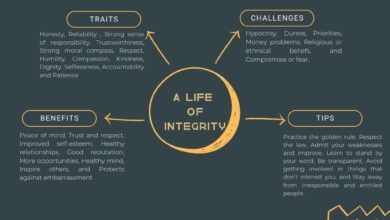The Ultimate Guide to Finding Your True Love


Understanding True Love
Definition of True Love
True love is often described as a deep and genuine affection for someone, unconditionally. It goes beyond physical attraction and encompasses emotional connection, mutual respect, trust, and care for each other. In a true love relationship, individuals are willing to make sacrifices, support each other in times of need, and prioritize the well-being and happiness of their partner. True love is not solely based on infatuation or fleeting emotions but is rooted in a profound understanding and acceptance of the other person.
Characteristics of a True Love Relationship
| Characteristics | Description |
|---|---|
| Respect and Mutual Support | Partners in a true love relationship respect each other’s opinions, feelings, and boundaries. They provide unwavering support in times of joy and challenges. |
| Communication and Honesty | Open and honest communication is a hallmark of true love. Both partners feel comfortable sharing their thoughts, fears, and dreams without judgment. |
| Trust and Loyalty | Trust forms the foundation of a true love relationship. Partners have faith in each other’s intentions and remain loyal through thick and thin. |
| Empathy and Compassion | Understanding and empathy towards each other’s feelings and experiences foster a deeper connection in true love relationships. |
| Growth Together | True love encourages personal growth and development. Partners motivate each other to achieve their goals and evolve both individually and as a couple. |

Self-Reflection and Personal Growth
Importance of Self-Reflection in Finding True Love
Self-reflection plays a crucial role in finding true love as it allows individuals to understand their own needs, values, and desires before seeking a partner. By reflecting on past relationships and experiences, individuals can identify patterns, preferences, and areas for personal growth. This self-awareness helps in forming healthier and more fulfilling relationships based on mutual understanding and compatibility. When individuals are in tune with their own emotions and aspirations, they are better equipped to communicate their needs and boundaries effectively to a potential partner, fostering a relationship grounded in honesty and authenticity.
Benefits of Personal Growth in Relationships
Personal growth in relationships leads to individuals becoming their best selves, which in turn positively impacts the relationship dynamics. As individuals grow and evolve, they bring new perspectives, skills, and strengths to the partnership, enhancing the overall connection. Personal growth fosters continuous learning and self-improvement, allowing partners to support each other’s aspirations and goals. This shared journey of growth and development strengthens the bond between individuals and cultivates a deeper sense of intimacy and companionship within the relationship.

Setting Relationship Goals
Identifying Relationship Goals
When considering relationship goals, individuals must reflect on their own desires and aspirations to ensure alignment with a potential partner. By setting clear intentions for the relationship, individuals can communicate their expectations openly and honestly, fostering mutual understanding and growth. Identifying shared goals allows partners to support each other in their individual journeys while working towards common objectives together. This collaborative approach to setting relationship goals creates a sense of unity and purpose within the partnership, strengthening the foundation for a lasting and meaningful connection.
Creating Healthy Boundaries
Establishing healthy boundaries is essential in maintaining respect, trust, and harmony within a relationship. By clearly defining personal boundaries and communicating them effectively, individuals can establish mutual respect and understanding with their partner. Healthy boundaries help in protecting individual needs and autonomy while promoting open communication and emotional safety in the relationship. When both partners prioritize setting and respecting boundaries, it creates a supportive and secure environment where each individual can thrive and the relationship can flourish.

Communicating Effectively
Importance of Communication in Relationships
Effective communication is a cornerstone of healthy relationships. It allows partners to express their thoughts, feelings, and needs openly and honestly, promoting understanding and empathy. Communication helps in resolving conflicts, building trust, and fostering emotional connection. By communicating effectively, individuals can strengthen their bond, navigate challenges, and deepen intimacy within the relationship.
Tips for Effective Communication with Your Partner
1. Listen actively: Pay attention to your partner without interruption. 2. Be honest and authentic: Share your feelings and thoughts openly. 3. Use “I” statements: Express your emotions without placing blame. 4. Practice empathy: Seek to understand your partner’s perspective. 5. Avoid defensive reactions: Stay calm and respectful during discussions. 6. Validate each other: Acknowledge your partner’s feelings and viewpoints. 7. Set aside dedicated time for communication: Create a safe space for open dialogue regularly.

Building Trust and Emotional Intimacy
Developing Trust in a Relationship
Trust is crucial in relationships as it forms the foundation for a strong and lasting connection. When individuals trust each other, they feel secure, respected, and valued. Trust is built through consistent actions, honesty, and reliability. It involves being vulnerable and transparent with your partner, knowing that they will support and understand you. Trust allows partners to feel safe to be themselves without fear of judgment or betrayal.
Enhancing Emotional Intimacy with Your Partner
Emotional intimacy deepens the bond between partners by fostering a sense of closeness and connection. It involves sharing vulnerable thoughts, feelings, and experiences with one another. Emotional intimacy is cultivated through open communication, active listening, and empathy. By being emotionally intimate, partners can strengthen their relationship, build a deeper understanding of each other, and increase feelings of love and support.

Overcoming Relationship Challenges
Common Relationship Challenges
Relationships often face challenges that can test the strength and resilience of the bond between partners. Issues such as communication breakdowns, trust issues, and conflicts over expectations can create tension and strain in a relationship. External factors like stress, financial struggles, and differing life goals can also impact the dynamics between partners. These challenges can lead to feelings of frustration, resentment, and distance if not addressed effectively.
Strategies for Overcoming Relationship Obstacles
To overcome relationship obstacles, partners must prioritize open and honest communication. By addressing concerns, expressing needs, and actively listening to each other, partners can work towards resolving conflicts and building understanding. Trust-building exercises, such as setting boundaries and honoring commitments, can help foster a sense of security and reliability in the relationship. Additionally, practicing empathy, patience, and mutual respect can aid in navigating challenges and strengthening the emotional connection between partners.

Red Flags in Relationships
Identifying Warning Signs in a Relationship
Relationships may exhibit red flags that indicate underlying issues warranting attention. Warning signs can manifest in various forms, such as consistent lack of communication, frequent arguments without resolution, and a pervasive feeling of distrust or discomfort. Other indicators may include one partner exerting control or manipulation, emotional or physical abuse, or a sense of stagnation or lack of growth in the relationship. These red flags can signal potential challenges that may impede the health and longevity of the partnership.
When to Seek Help or End a Relationship
Recognizing when to seek assistance or consider ending a relationship is crucial for personal well-being. Seeking professional guidance from a therapist or counselor can provide valuable insights and strategies for addressing relationship concerns. If red flags persist despite efforts to rectify them, or if behaviors pose a threat to one’s emotional or physical safety, it may be necessary to reassess the viability of the relationship. Prioritizing self-care and establishing boundaries are essential steps in deciding whether to seek help to overcome challenges or to move towards ending the relationship.

Nurturing Long-Term Love
Maintaining Passion and Connection
Partners in a long-term relationship must prioritize maintaining passion and connection to sustain a healthy and fulfilling bond. Regular communication, expressing appreciation, and engaging in meaningful activities together can help keep the spark alive. It is essential to prioritize quality time for intimate moments and shared experiences, fostering emotional closeness and understanding between partners. By actively nurturing passion and connection, couples can navigate challenges and continue to strengthen their relationship over time.
Cultivating Long-Lasting Love with Your Partner
Cultivating long-lasting love requires dedication, effort, and a mutual commitment to growth and support. Partners should strive to understand each other’s needs, communicate openly and honestly, and show empathy and respect. Building trust and intimacy through shared goals and values can deepen the connection and foster a sense of security within the relationship. By fostering a foundation of love, trust, and companionship, couples can navigate the ups and downs of life together, creating a lasting and meaningful partnership.

Nurturing Long-Term Love
Maintaining Passion and Connection
Partners in a long-term relationship must prioritize maintaining passion and connection to sustain a healthy and fulfilling bond. They can achieve this by engaging in regular communication, expressing appreciation, and participating in meaningful activities together. Prioritizing quality time for intimate moments and shared experiences fosters emotional closeness and understanding between partners, helping to keep the spark alive over time.
Cultivating Long-Lasting Love with Your Partner
Cultivating long-lasting love involves dedication, effort, and a mutual commitment to growth and support. It requires partners to understand each other’s needs, communicate openly, show empathy, and respect one another. By building trust and intimacy through shared goals and values, couples deepen their connection and create a sense of security within the relationship, nurturing a foundation of love, trust, and companionship for enduring partnership.




